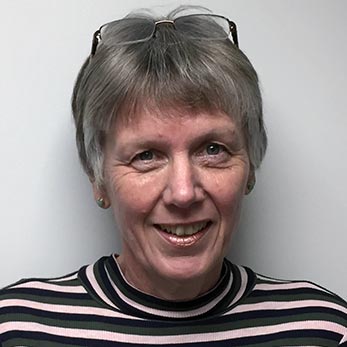Christine Everley

The real difficulty is to overcome how you think about yourself.
About me
I am a person centred counsellor and an accredited member of the British Association for Counselling and Psychotherapy (BACP). I also have training in the use of cognitive behavioural therapy (CBT) because I found it helpful when I received counselling. From my own experience in counselling I know that building a safe and trusting relationship between the counsellor and client is key to achieving a client’s goals.
My written work for my professional accreditation with the BACP focused on how a combination of person centred and CBT interventions help clients. I continue my professional development by attending a number of relevant courses every year and I draw on different techniques during work with clients. I have a broad range of experience and have worked at a number of public and private organisations.
Help and treatment
According to the charity Beat, people experiencing eating disorder symptoms wait on average almost three years before seeking help. Why wait? The sooner someone is treated for an eating disorder, the better their chance of making a full recovery.
Eating disorders can be a way of coping with difficult emotions or situations. Anyone, of any age, gender or background, can develop an eating disorder or struggle with disordered eating. It is often difficult to speak to those closest to you. Family and friends may find it difficult to accept your perspective. Talking things through with a trained counsellor can really help.
I provide a safe, confidential place to talk about your life and your relationship with food. You will not be judged or given advice. Counselling is about helping you to develop insights into your problems and find your own resources and strength to tackle them. There is no concern or problem that is too big or too small to talk about. Whether your difficulties with food began recently, have been ongoing or are coming back, the best time to seek help is now.
